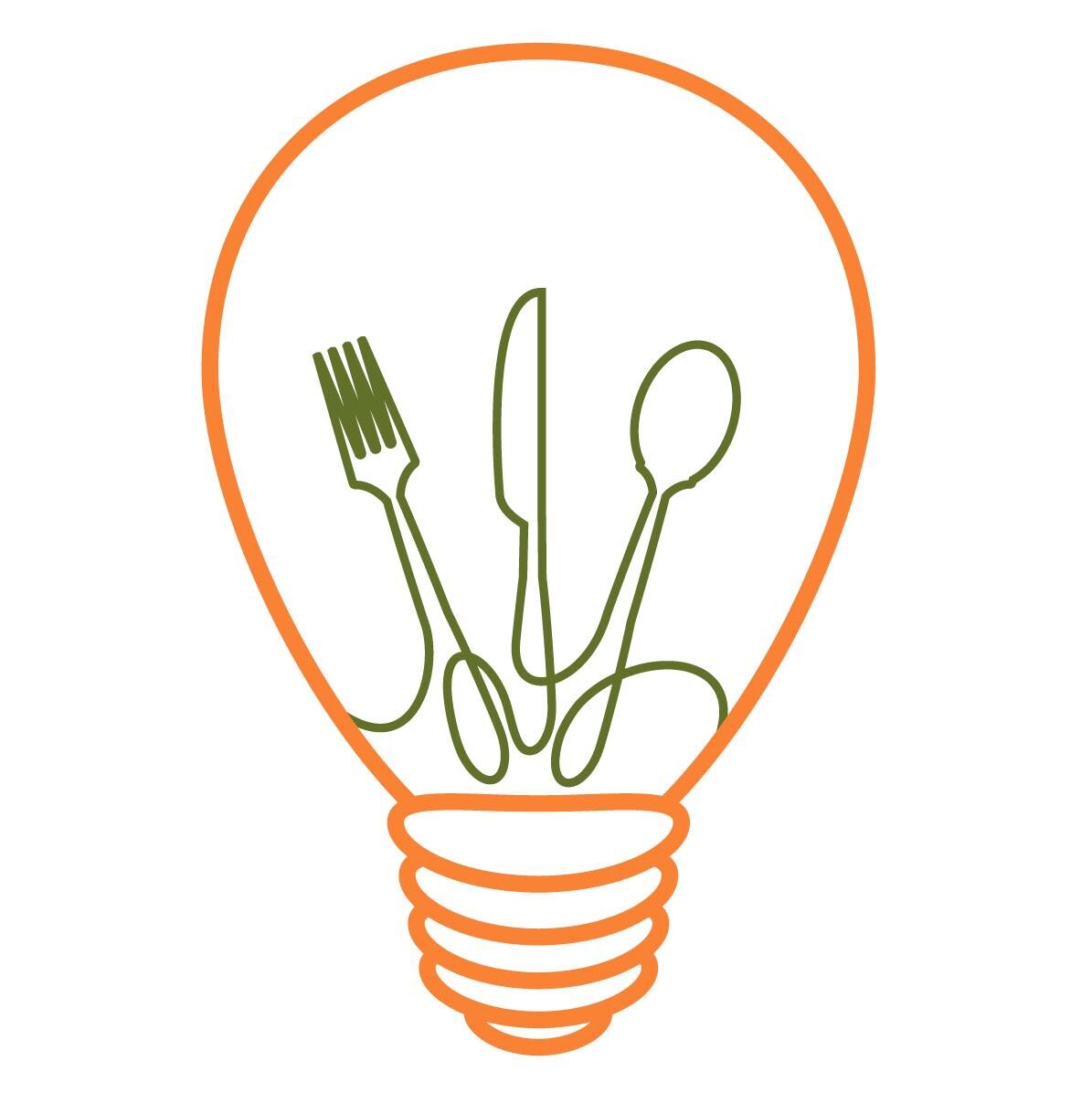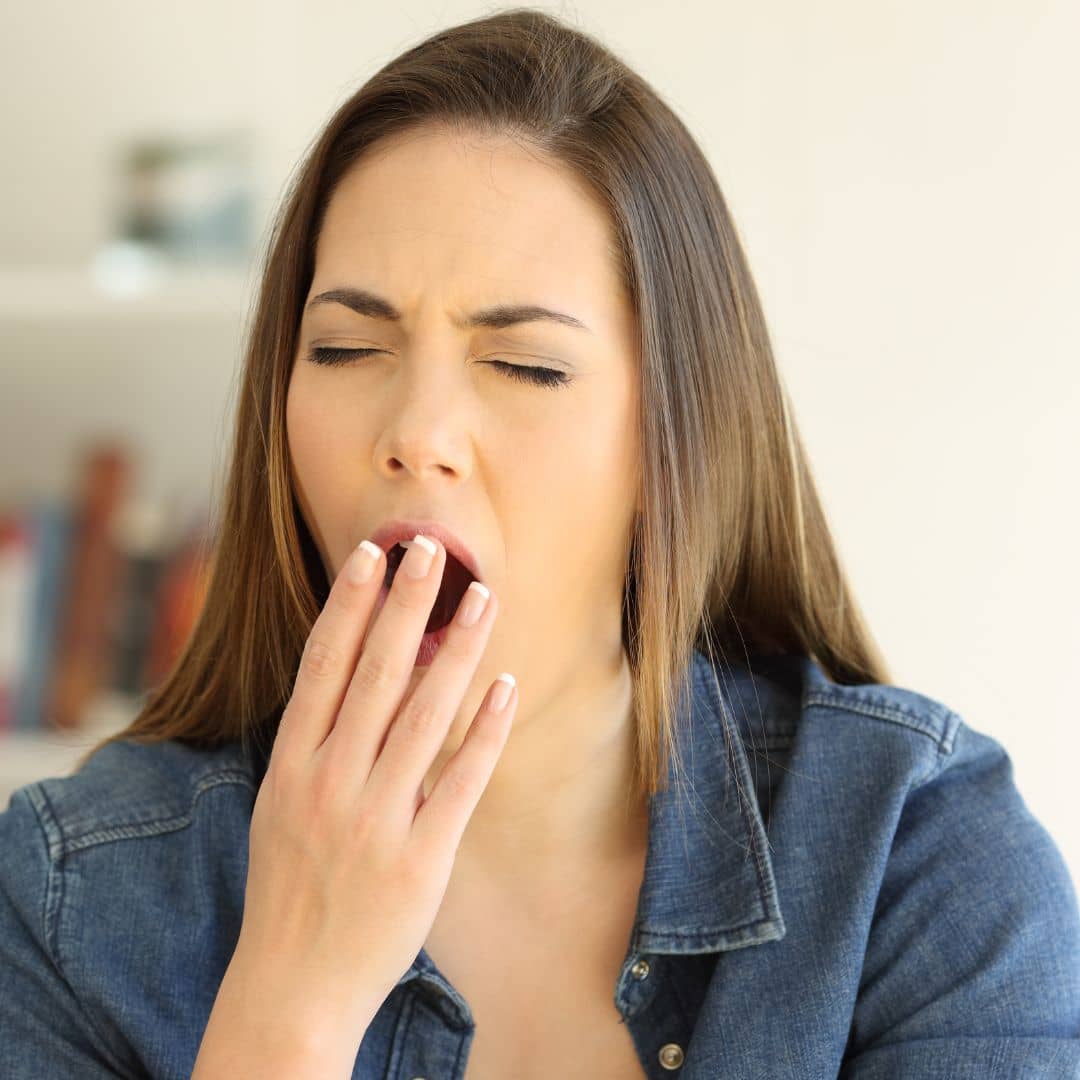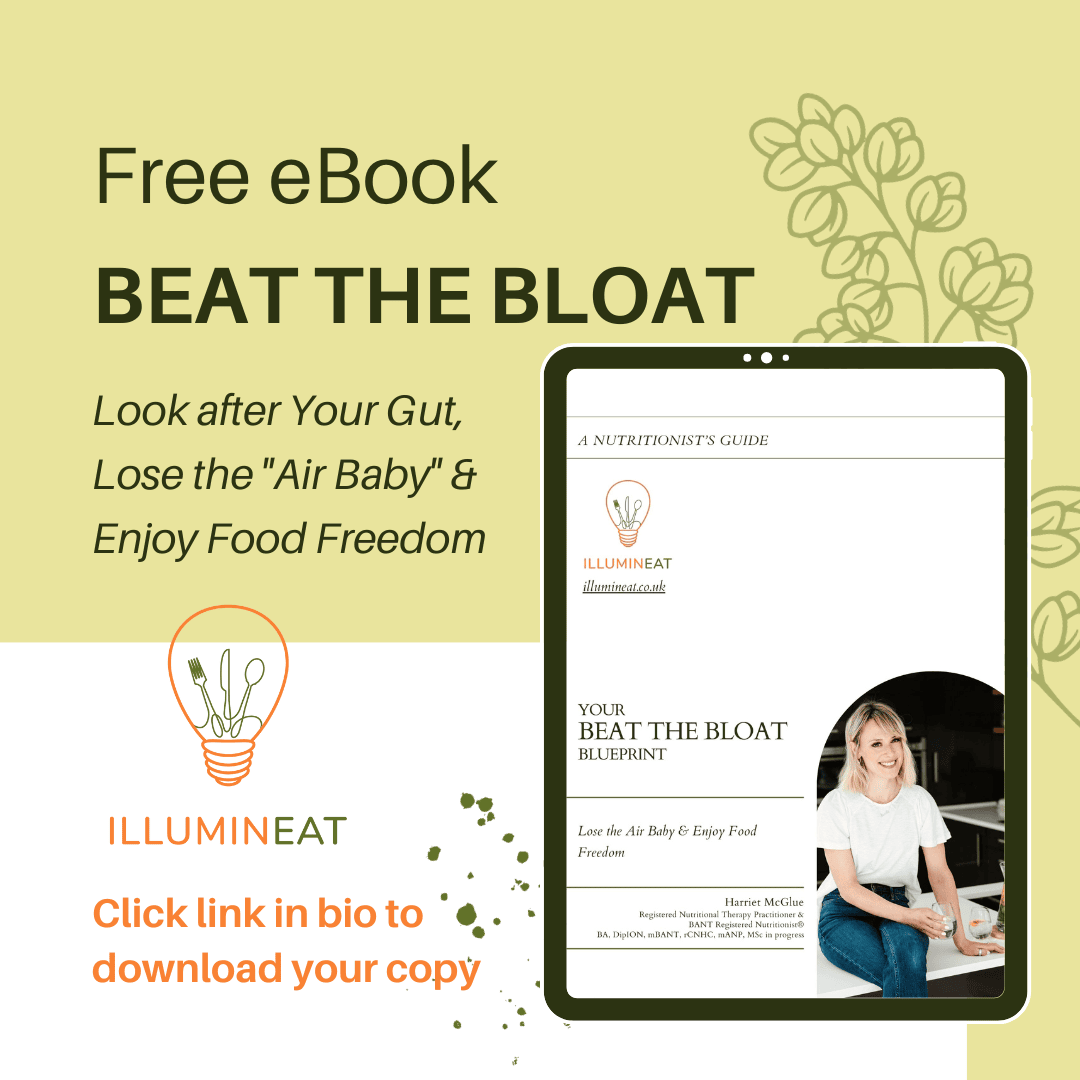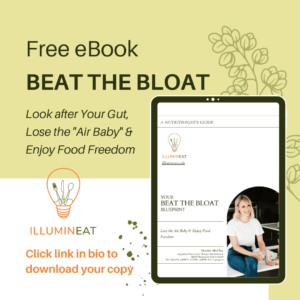Everyone’s been bloated at some time or other; be it a “food baby” following a big meal, when we’re stressed or pre-period. We’re talking that pressure in your tummy feeling, all tight & filled with gas…like a balloon you just need to pop! You surreptitiously un-do your top button and hope and pray no-one asks when you’re due…It can be mildly uncomfortable or downright painful, and embarrassing if you do visibly ‘inflate’. It’s certainly common, but that doesn’t always mean it is normal – or that we can’t beat the bloat!
That being said, some temporary bloating after eating a meal containing lots of fibre (veggies, beans and pulses etc.) is usually a good thing! After all, it’s a sign we’re feeding our healthy gut bacteria the good stuff they need to thrive. The gas is simply a by-product of them fermenting all that lovely fibre!
How likely we are to be troubled by bloating depends on our unique balance of gut bacteria (microbiota) and how much gas it produces, versus how efficiently our gut wall absorbs it. Women tend to be worse affected than men.
We’ll dive in to some common causes of bloating – and how to tackle them – below.
It’s worth noting, however, that bloating can sometimes signal something more sinister. If bloating is persistent or you experience weight loss, blood in your stool (red or black tarry stools), diarrhoea, vomiting, lack of appetite etc., PLEASE SEE YOUR DOCTOR.They will need to rule out coeliac disease, IBD, gut infections, cancers etc.
Common food triggers
- Fizzy drinks– you don’t want to swallow more air!
- Sugar-free products (gum, mints, sweets, diet/low calorie/low fat products). These frquently contain sugar alcohols called polyols (one of the FODMAPs). Names to look out for: mannitol, sorbitol, xylitol etc
- Excess caffeine
- Excess alcohol
- Spicy food
- Fatty food – this sits in the stomach longer
- Too much fruit/juice – limit whole fruit to one serving per meal/snack & avoid juice/fruit smoothies (you many be fructose – fruit sugar – intolerant)
- Too many fermented foods e.g. kefir & sauerkraut (build up gradually!)
- Suddenly going plant-based or increasing your fibre dramatically (low and slow is the way to go)
- Gassy veg: onions & garlic/the cabbage family/beans and pulses/nuts&seeds. These are an important part of a healthy diet so simply eliminating them is not the way to go – see a registered Nutritional Therapist who can help you isolate the worst offenders for you & work out your tolerance level
Other explanations
- Constipation – this is the most common of all! A clogged intestine will block passage of gas. Plus, the slower the transit of stool through the gut, the longer our microbes have to ferment it and produce gas
- Stress
- Hormones – luteal phase i.e. before your period
- “Visceral hypersensitivity”. This simply means that, for some of us, the gut is more sensitive to the feeling of fullness. The amount gas is not necessarily more than “normal” but it feels worse
- In some people, bloating triggers messaging between the gut and the brain that the diaphragm needs to contract & the gut muscles relax to pop the tummy out (& relieve the pressure discomfort)
- History of eating disorder – gut muscles can waste, impacting nerve-muscle communication. This is usually reversible if the underlying disorder is resolved but takes time
Tips to beat the bloat:
Lifestyle tips
- Avoid skipping meals (getting too empty) or having a blow-out in one sitting
- Avoid drinking at mealtimes – get lots of water in between meals instead
- Take some slow, deep belly breaths; do a 5 minute meditation; or few yoga stretches before you sit down for your meal. We’re aiming to activate the parasympathetic nervous system (aka “rest and digest” mode) here!
- Many people find digestive bitters useful. Alternatively, go the food-route with a starter of bitter leaves (rocket, dandelion greens, watercress, baby kale, endive etc. with a vinegar & olive oil dressing)
- Eat at a table – or at least sitting down – rather than on the hoof. Put your laptop away and take 20 mins to eat slowly and mindfully. Digestion begins in the brain, and we need to be “in the zone” to get the right juices (digestive enzymes, stomach acid, bile) flowing. Aim for 20-30 chews per bite…
- A short walk after your meal can help “coax” gas through the digestive system – or try some yoga poses to diffuse it (better out than in!)
- If you are experiencing discomfort, try a heat pack. This can recruit blood flow to the area and relax the gut muscles relieving gas
- Keep a food diary to help identify any food sensitivities. The most common are lactose, gluten, wheat and “FODMAPS” (very healthy fibre-filled foods which our gut bacteria ferment, producing gas). If you are struggling to narrow down your triggers, a Registered Nutritional Therapist or dietician can guide and support you through the process. If you suspect certain foods, an elimination diet (where you remove the food from your diet and then re-introduce it, monitoring symptoms) is only true way to find out. Be wary of the many “food intolerance” tests out there – even the most credible sounding ones.
Nutrition tips
- When you eat beans, lentils and chickpeas, rinse well if from a can OR soak overnight and rinse several times if cooking from scratch. This reduces levels of lectins & saponins which can cause bloating
- Milled linseeds/flax can help. Build up slowly, starting with 1 tsp of linseeds/flaxseeds per day for a few days, then increasing to 2 tsp, 3tsp and up to 1tbsp if required. The seeds work by drawing in water so it is important to drink extra (to avoid constipation which will make matters worse). Alternatively, you can buy the whole seeds & soak in water/milk or add to porridge/yoghurt.
- Eating oats may help symptoms of bloating, wind and constipation.
- For some people, taking peppermint oil capsules can be effective for relieving bloating & cramps caused by trapped wind. The dose is 1 or 2 capsules, taken 3 times a day, an hour before food.
- Turmeric, ginger, fennel & cumin can all aid digestion – use liberally in cooking!
- Try an after-dinner tea to support digestion. You can buy a digestive blend, or try liquorice, ginger, peppermint or turmeric
- Probiotics can be useful but, as always, it’s not simply a case of plucking a box off the shelf! You will want to consult a Registered NT or dietician who can guide you to a strain (or blend of strains) with good evidence for bloating & tell you how to take it. You’ll generally test it for 4 weeks before trialling another if that was ineffective.
If you’re still struggling…
You will probably want to consult a Registered Nutritional Therapist who can look at the following, as required
- Testing for SIBO (small intestinal bacterial overgrowth) – treated with antibiotics or natural alternative
- Testing for dysbiosis (an imbalance in bacteria). This is super common as a result of antibiotics, stress, diet and certain medical conditions
- Food intolerance testing – elimination diet
- FODMAPs – testing your individual tolerance to these fermentable carbohydrates which, although very healthy, cause gut distress in many with IBS
















